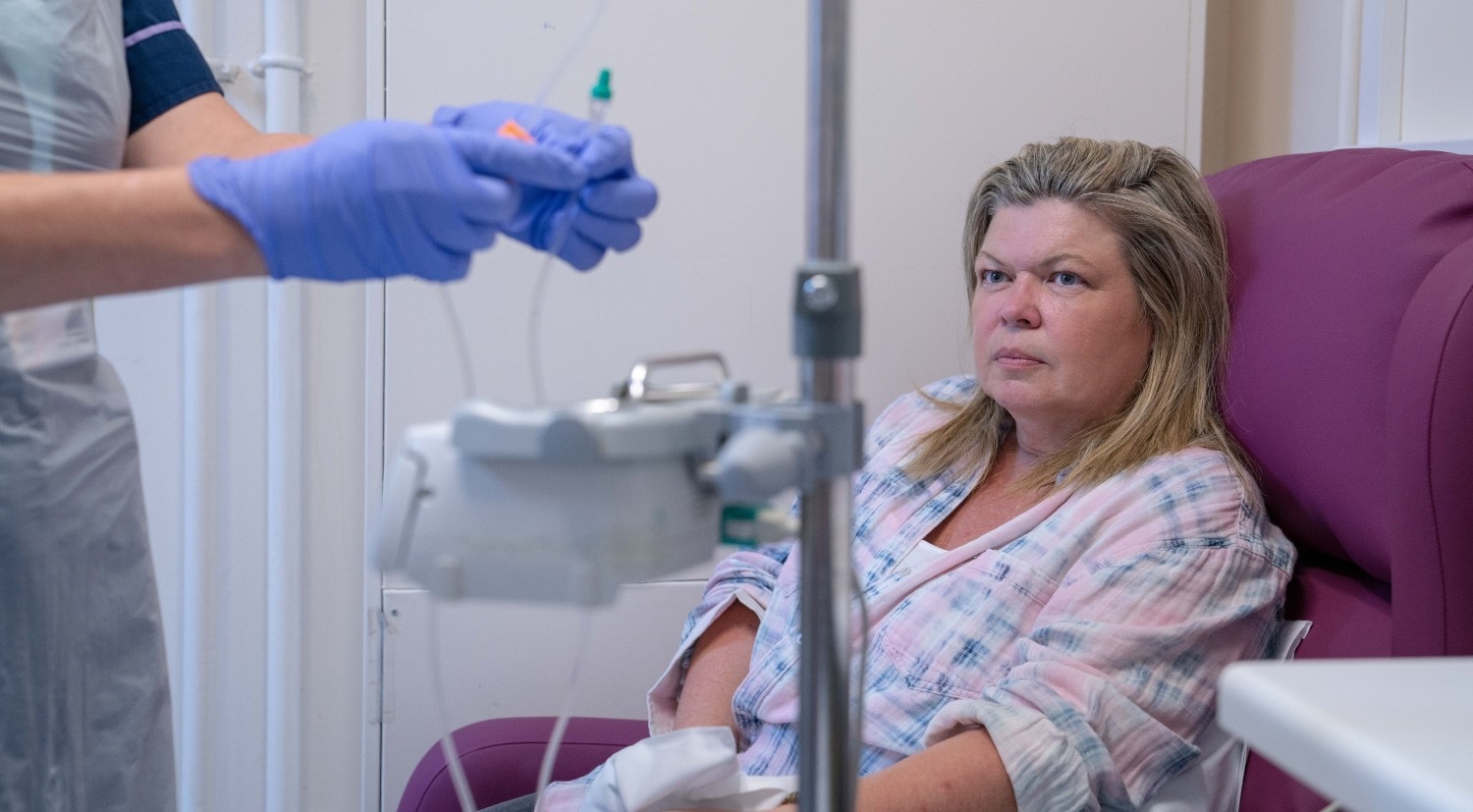Last week, the Scottish Government published the ‘Recovery and Redesign: An Action Plan for Cancer Services’ which sets out the cancer recovery plan and cancer strategy in the wake of the coronavirus pandemic.
Last week, the Scottish Government published the ‘Recovery and Redesign: An Action Plan for Cancer Services’ which sets out the cancer recovery plan and cancer strategy in the wake of the coronavirus pandemic.

Breast Cancer Now’s Policy team, alongside the Scottish Cancer Coalition, have been working to ensure this plan improves the treatment, care and support that breast cancer patients receive in Scotland. This included giving feedback on the draft plan and making sure our concerns, including those raised by people living with secondary breast cancer, were heard by the Scottish Government.
Impact on support and care
Breast Cancer Now understands the crucial role that Clinical Nurse Specialists play in providing the information and support people need to manage their diagnoses. We also know that, because of the impact of coronavirus, access to a Clinical Nurse Specialist has never been more important.
We are pleased that the plan includes a positive commitment to explore opportunities to increase the time patients receive with their Cancer Nurse Specialists.
We also welcome the additional £6.75 million to the Transforming Cancer Care (TCC) programme. TCC will enable every breast cancer patient in Scotland to receive personalised care through access to a key support worker and receive dedicated financial, practical and emotional support.
Supporting early diagnosis
The recovery plan includes ambitions and actions to help support earlier diagnoses of cancer.
As part of this, a £3 million commitment to create Early Cancer Detection Centres will improve patients’ chances of an early diagnosis by offering multiple diagnostic tests in one visit, at one site.
These centres will also aim to make sure patients with less severe symptoms possibly linked to cancer, like weight loss and fatigue, will be better investigated. These investigations could improve early diagnosis for secondary breast cancer in Scotland.
An additional £5.67 million has been allocated to improve cancer diagnosis, with some of the money going towards new equipment like MRI machines. Money has also been made available to tackle inequalities in uptake of cancer screening.
We are grateful for the extra funding for diagnosis, as we know the earlier breast cancer is diagnosed, more effective treatment can be provided. We are now working to get a clearer picture of where this money will be used and how it will improve diagnosis of breast cancer in Scotland. However, we are concerned that the plan fails to address current shortages in the diagnostic workforce which could impact the future of early diagnosis for breast cancer patients.
Developments for cancer treatment
Treatments like chemotherapy and other drugs were offered to patients in oral forms during the pandemic, giving some patients better treatment experiences in settings closer to home. The plan commits to exploring the benefits and risks of continuing to use this approach across Scotland.
The recovery plan also includes a new programme looking at how prehabilition can be used to support cancer patients. Cancer prehabilitation helps patients prepare as best they can for treatment and help reduce potential negative impacts. This includes helping the patient prepare psychologically, help in eating well, stopping smoking and reducing alcohol intake. If this programme is successful, prehabilition could improve treatment outcomes for breast cancer patients.
We welcome the £2.95 million that has been allocated to enable cancer patients in Scotland to receive the best treatment; over the next few weeks we will be seeking clarity on how and where this money will be used. We also recognise the commitment to develop a national plan for Scotland’s radiotherapy services by 2021.
However, we are concerned that the plan neglects to mention actions to support the recovery of breast reconstruction services – an essential part of treatment for many women with breast cancer.
Secondary breast cancer
We are extremely disappointed that this recovery plan does not build on commitments made by the Scottish Government in April’s ‘Beating Cancer: Action and Ambition’ update.
April’s update included commitments to work with Breast Cancer Now to improve symptom awareness, data collection and care for incurable secondary breast cancer patients.
The Cancer Recovery Plan, therefore, marks another missed opportunity to improve the data available on secondary breast cancer: the first step to ensuring every person gets the care and support that they need.
Overall, we welcome the commitments and funding in the plan to improve early diagnosis, access to care and treatment for thousands of cancer patients. However, we are concerned that it does not address critical issues that would improve the outcomes and experiences of people with breast cancer.
We will now be looking for opportunities to work with the Scottish Government to ensure that everyone living with breast cancer in Scotland receives the best treatment and care.
If you’d like to find out more about our reaction to the Scottish Recovery Plan and what it means for breast cancer, you can read our Chief Executive Delyth Morgan’s response online.